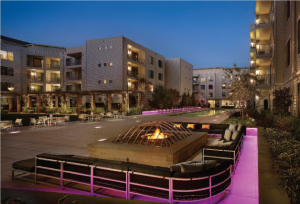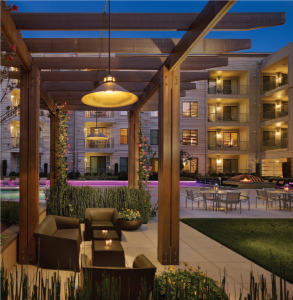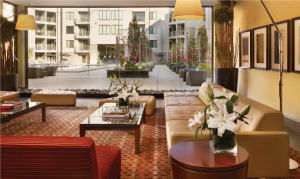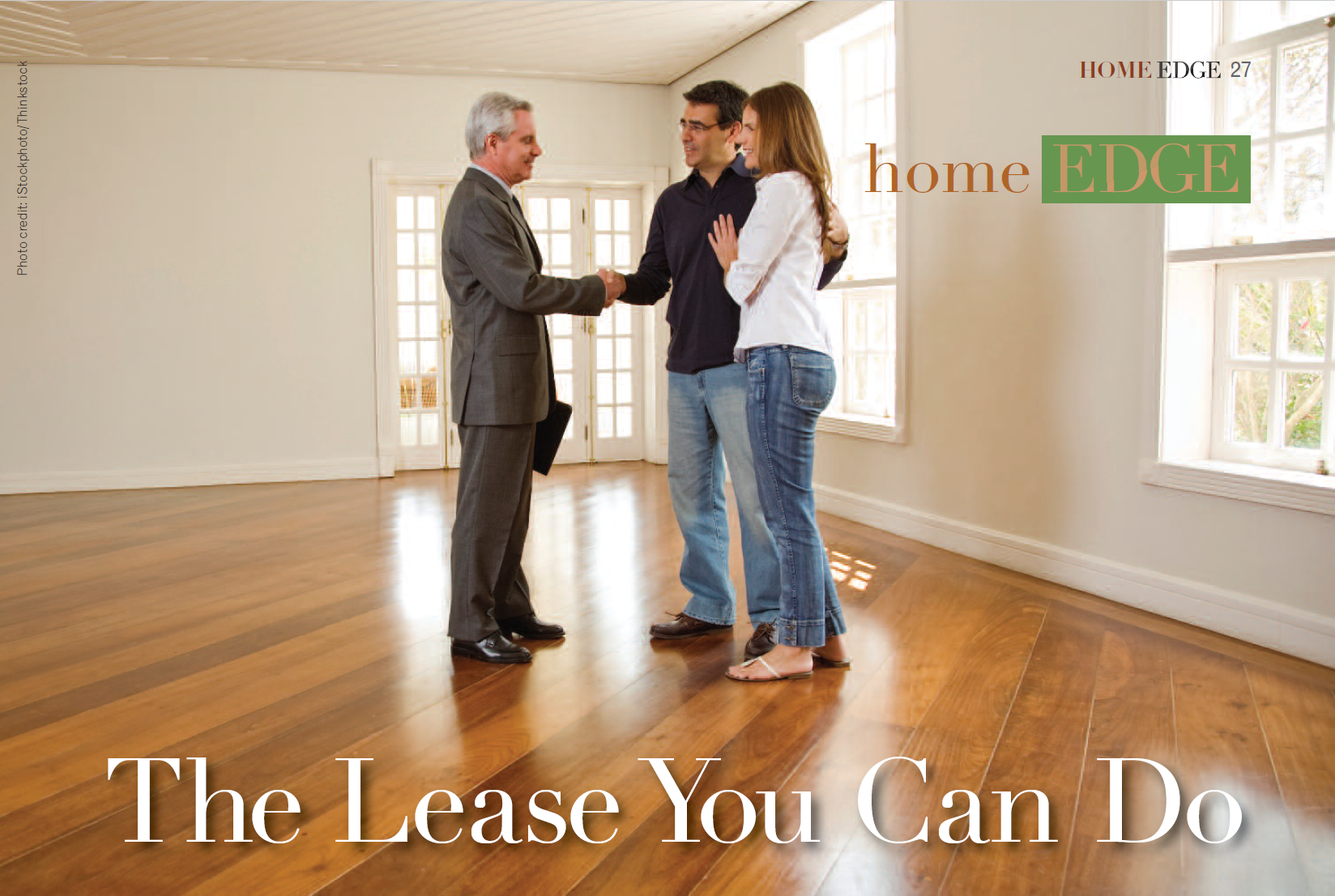The laws of gravity and unintended consequences have collided in the New Jersey real estate market. The result is a warming trend in rental properties.

Photo credit: AVE/Kormanv
Throughout the United States, our jobs, our investments, our savings, our confidence, even our very homes are at risk. In New Jersey, the decline in home values since 2006 has changed the very complexion of the real estate market. And many professional predictions for 2012 forecast a continued downward trend. One of the consequences has been a rental boom, with some statistics indicating that vacancy rates in the third quarter of 2011 dropped sharply to 5.6%— the lowest level since 2006. Unfortunately, this has also led to a decrease in rental inventory and an accompanying increase in rents, which reached a median last year in the Garden State of about $1,500 for a one-bedroom. For any homeowner contemplating a move in the near future, the dilemma remains unchanged: Is it better to sell or stay? For everyone else, however, the question becomes: Does renting make more sense? The answer may surprise you.

Photo credit: AVE/Kormanv
A Different Animal In the gold-plated days before the economy tanked, the vast majority of renters in New Jersey were people who couldn’t (or chose not to) cough up enough cash for a down payment on a house or condo. Since many mortgage companies were offering loans with no or low down payment and a cursory credit check, almost everyone with a pulse could own a home. Today’s renter is a slightly different animal. One of the biggest barriers to home ownership is building a nest egg big enough to buy the nest. Among renters canvassed in a recent survey conducted by Trulia, an online real estate search engine, 51% confirmed insufficient down payments as the reason they had become renters rather than buyers.
Recently federal regulators have been suggesting that buyers must put down as much as 20% and sometimes even more. Right now, New Jersey has the highest average down payment rate in the country at 13.71% according to LendingTree. Some 36% blamed their inability to qualify for a mortgage as the reason they rent. Either their income was too low or their credit was sketchy. My, how things have changed. Job insecurity is another characteristic of the average renter’s profile.
An uncertain future makes relatively short-term rental and lease arrangements a preferable alternative to long-term home ownership. While owning over renting had long been the Holy Grail of real estate investing, the analysts who crunch these numbers now generally agree that purchasing a home in the current environment is the right move only if the property will be held for at least several years (the longer the better). For example, a buyer paying $400,000 for a home with 3% down and a mortgage under 5% will only start to come out ahead of a renter paying $2,000 per month after four years! This gives the “let’s wait-and-see” renter solid footing to continue leasing, even in a buyer’s real estate market. Of course, some people by nature are simply not cut out to be home owners. These individuals prefer to leave clogged drains and leaky roofs to the super or the landlord. Add to that our state’s high real estate taxes, and you have another reason why renting trumps owning for those who can afford to be choosy.

Photo credit: iStockphoto/Thinkstock
The Foreclosure Factor So where are we in the home-buying market, at least pricewise? According to the Case-Shiller Home Price Index released mid last year, home prices in Northern and Central New Jersey were down 24.2% from their 2006 highs, and down a more modest 3.4% from 2010 to 2011. Some experts believe that we could see the beginning of a rebound in 2012, or perhaps in 2013. More, however, are inclined to think that the market hasn’t bottomed yet. They cite an anticipated influx of foreclosures expected in 2012. The foreclosure factor is likely to have an impact on the rent vs. own decision, although which way it breaks is anyone’s guess.
The normal flow of foreclosures was impeded for a couple of years after it was discovered that some major banks were “robo-signing” key documents. It has taken a long time to go back and untangle the paperwork problems, resulting in tens of thousands of people being allowed to stay in their homes. Soon they will be hitting the street en masse—presumably as renters—while their homes will be vacant and available for sale or rent. What kind of numbers are we looking at? According to Michael Bonner, Founder and CEO of PropertyPilot, a real estate data and analytics company, there are over 150,000 properties in some state of foreclosure throughout New Jersey that will hit the market soon. This could put more downward pressure on home prices for the next year or two, making uncertain buyers much more uncertain. Many will undoubtedly opt to become (or remain) short-term renters.

Photo credit: AVE/Korman
Upscale Options With more people in New Jersey renting and new construction slowed to a crawl, the supply of apartments is dwindling. Which means that prices are likely to rise. Vacancy rates are tightening, with projections they will fall to 2.4% by the end of 2012. That means that for every 40 occupied units, there is only one empty and available. As a result, some developers are actually converting their for-sale condos into high-end apartments for lease. That should ease some of the supply-and-demand pressure. More important, it creates a new and appealing product for the shifting tastes and elevated expectations of the New Jersey renter. AVE, a division of Korman Communities (a pioneer in corporate housing), specializes in the suburban midrise residential rental market. Amy Barricelli, AVE’s Vice President of Marketing, confirms that the rental sector is on the upswing and describes New Jersey apartment-seekers as a “growing, savvy and discriminating” clientele. AVE’s hybrid business plan offers both furnished and unfurnished apartment units.
The former are available on a daily-rate basis for relocations and professionals in between homes. The latter are distinctive, yet reasonably high-end with an average monthly rent of $2,000 for a one-bedroom. For that price, residents enjoy a friendly home-like environment filled with healthy and high-tech amenities and social activities. As to AVE’s typical renter profiles, Barricelli says that among the company’s three New Jersey communities, their current resident population includes some newly married, some recently divorced, some corporate types, some Gen-Xers and some boomers. All are looking for the bells, whistles and extra creature comforts that can be difficult to find in a typical rental property. Barricelli adds that Korman views New Jersey as fertile ground for future growth and development of this type of rental option.
A Home-Buying Comeback? As long as home ownership is part of the American Dream, it would be unwise to bet against a comeback. The coming wave of foreclosures may create a new surge of renters, however it will also reset prices in the housing market, and ultimately help to stabilize it. It will be interesting to see whether the homes snapped up in foreclosure end up in the hands of those American Dreamers, or whether savvy investors buy them and convert into rental homes. Who knows? There could be a rental bubble awaiting us. How ironic would that be? It is not as far-fetched as it seems. For now, the rental market seems to be flexing its muscle, although Standard & Poors has suggested that the current gap between buying and renting is narrowing. This could mean the only sure winners in real estate in 2012 will be the landlords, the smart investors, and the property managers. The one unalterable fact is that people need a place to live. And since home is where the heart is, these days it makes little difference whether it’s owned or rented.





